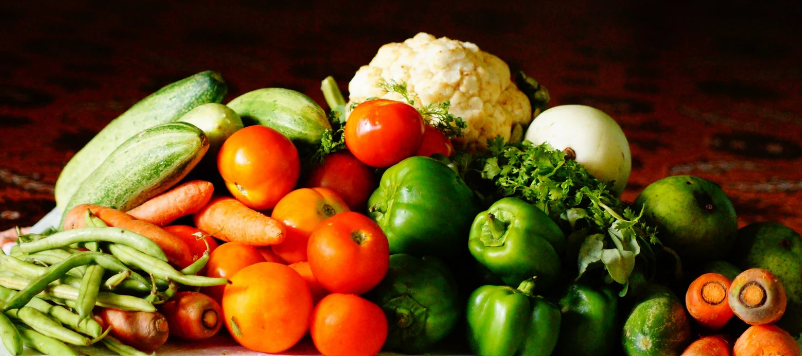People who are well nourished have the best outcomes from surgery.
You can be malnourished whatever your weight. If you are underweight you should try and gain some weight or not lose any further weight before your surgery. If you are overweight, losing some weight before surgery will reduce your chances of a complication.
Managing weight is hard. Changing your diet prior to a stressful event such as surgery is difficult, but can make a real difference. Good quality, evidence based advice gives you the best chance of success.
If your weight is something you would like to target, we recommend you take a look at the following resources:
You can find some specific advice for different aspects of nutrition below:
Try to eat at least five portions of fruit and vegetables each day.
Fruits and vegetables are a great source of vitamins, minerals and fibre. They should make up over a third of the foods we eat each day. You can eat fresh, frozen, tinned, dried or juiced. However, you should only drink a maximum of 150ml (a small glass or tumbler) of fruit juice and/or smoothies each day as they contain a lot of sugar.
Starchy carbohydrates are things like potatoes, bread, rice and pasta. If you are already at a healthy weight then they should make up around a third of your daily food intake, this proportion should be reduced if you are trying to lose weight.
Wholegrain or brown bread, rice and pasta are better than white and it's best to leave the skins on potatoes. This gives you more fibre and helps keep you fuller for longer.
Dairy products such as milk, cheese or yoghurt are a good way to get protein which will help keep you strong after an operation. They also contain some vitamins and calcium which helps keep bones strong.
Dairy alternatives (such as soya/almond drinks and yoghurts) often contain similar things but this does vary so please read the packaging or ask for help understanding it if you need.
Foods that provide lots of protein are things like: beans, pulses, fish, eggs, meat peas and lentils. You need some protein in every meal.
Ideally try and eat at least two portions of fish every week – especially oily fish, such as salmon or mackerel.
It can be helpful to eat less red processed meat such as bacon, ham and sausages as these increase your risk of bowel cancer.
All oils and fats are high in energy (they have lots of calories). You should only eat them in small amounts. These are foods like chocolate, cakes, biscuits.
When you are choosing oil to cook with, unsaturated oils/fats are healthier than saturated fats.
Drink plenty of fluids – the government recommends 6-8 cups/ glasses a day.
Water, lower-sugar or sugar-free drinks including tea and coffee all count towards your fluid intake.
